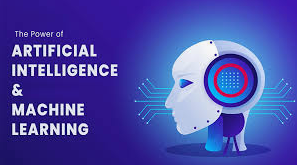
The rapid development of new technologies regarded as groundbreaking marks a major turning point in the history of the evolution of businesses all around the world. These new technologies are revolutionary forces changing how companies run, compete, and create value rather than only updates. Some of the top 10 emerging technologies transforming sectors in 2025—which this blog explores—are artificial intelligence and quantum computing.
1. Machine learning and artificial intelligence, more usually known as AI/ML

Artificial intelligence and machine learning are still driving the technology revolution; they are advancing past predictive analytics to autonomous decision-making. From the automation of customer service through the use of AI chatbots to the advancement of medical diagnostics in the healthcare sector, artificial intelligence is being included into almost every industry by the year 2025.
Key Applications:
- Fraud detection in the financial services sector
- Predictive maintenance in the manufacturing sector
- Customized teaching in the subject of learning
Impact:
Artificial intelligence (AI) is regarded to be one of the most important new technologies transforming society since it can remove human mistake, boost speed, and lower running expenses.
2. Quantum Level Computer Calculations
Quantum computing is one approach that pushes the envelope of processing capability and solves problems not solvable by traditional computers. Even if it is still in its early stages of commercialization, 2025 will see more investment and innovations that will enable quantum capabilities to more companies.
Key Applications:
- Molecular modeling in the pharmaceutical sector
- Financial portfolio optimization
- Real-time traffic optimization in the logistics sector
Impact:
The next horizon among modern technology is quantum computing, with effects relevant all across the company. It is capable of handling massive data combinations at previously unheard-of speeds.
3. Beyond 5G and Beyond
Early adoption of 6G research in 2025 and the deployment of 5G networks allow one to obtain connection with reduced latency and faster speed. The objective of this change is to build more intelligent and linked systems; speed is not the only factor taken into account.
Key Applications:
- Real-time remote surgical operations in the medical field
- Real-time exchange among autonomous cars
- The smart city infrastructure must
Impact:
5G is regarded as one of the most important new technologies of the decade since a rise in connection allows companies to develop more swiftly, grow more intelligently, and run with more reliability.
4. Industrial Internet of Things (IIoT) and Internet of Things (IoT)
The Internet of Things movement is now centered on linked enterprises rather than connected homes. By 2025, millions of sensors will be installed all over different sectors, enabling tracking, monitoring, and control of anything from agriculture to supply chains.
Key Applications:
- Smart manufacturing employing sensors linked to the internet of things
- Real-time inventory control
- Smart farming and crop monitoring
Impact:
The Internet of Things is redefining efficiency, enabling data-based decisions, and giving real-time visibility—all of which are traits of the top emerging technologies transforming running operations.
5. Extended reality (XR) consists in AR, VR, and MR
Extended Reality (XR) is transforming retail, real estate, and training among other sectors; it includes Augmented Reality (AR), Virtual Reality (VR), and Mixed Reality (MR). XR starts to be somewhat common in 2025. New technologies incorporate these features.
Key Applications:
- Architectural design visualization uses mixed reality (MR)
- Virtual reality (VR) for staff onboarding
- Augmented reality (AR) for remote help and maintenance
Impact:
Clearly established among emerging technologies changing user experiences, augmented reality (XR) is the enhancement of customer engagement and the improvement of training accuracy.
6. Computing on the periphery
Edge computing puts computation closer to data sources, therefore enabling decentralizing of data processing. Edge computing will become indispensable for latency-sensitive applications in 2025, when the Internet of Things (IoT) and 5G take the stage. New technologies incorporate these features.
Key Applications:
- Processing in real time for autonomous cars
- Analyzes conducted on-site at different factories and oil rigs
- Medical procedure diagnostic services in surrounding locations
Impact:
Edge computing is therefore a necessary part of the ecosystem of modern technologies since it enhances response times, raises security, and reduces bandwidth usage.
7. Automaton and Robotics Technologies
By 2025, robotics and automation will be applied in retail, hospitality, and healthcare, among other sectors outside of manufacturing. New technologies incorporate these features. Among the challenging tasks robots can today handle are surgery, warehouse sorting, and hotel service.
Key Applications:
- Robotic surgery and patient care
- Automated checkout systems in retail marketplaces
- Collaborative robots (cobots) in production environments
Impact:
One of the most concrete instances of new technology changing the dynamics of the labor, robotics offer a competitive edge thanks to their accuracy and efficiency.
8. Blockchain technologies and distributed finance—also referred to as DeFi
From cryptocurrencies, the technology known as blockchain has evolved into a flexible solution allowing users to make transparent and safe transactions. It is profoundly changing data, supply chains, and financial systems’ governance in 2025.
Key Applications:
- Safe and dependable digital identity verification
- Payments performed across national boundaries using smart contracts
- Supply chain accountability in the pharmaceutical and food sectors
Impact:
Blockchain technology’s ability to eliminate middlemen and boost openness helps to establish it as among the most disruptive emerging technologies.
9. Genomics in Connection to Biotechnology
Recent advances in biotechnology allow one to practice sustainable agriculture, customized medicine, and faster development of medications. In 2025, CRISpen and other genome editing technologies will cross a major turning point.
Key Applications:
- Personalized gene treatments
- Crop engineering known as CRISPR
- Preparedness for the Pandemic by means of accelerated vaccination development
Impact:
Since biotechnology combines biology and technology to address world health and food issues, it is among the most transformative new technologies available. This makes it one of the most crucial new technologies among them.
10. Technologies with sustainable and benign environmental impact
Growing urgency about climate change has made sustainable technology go from a specialization to a need quite important. The main areas of focus for 2025 technologies include carbon-neutral manufacture, waste reduction, and sustainable energy sources.
Key Applications:
- Solar panel technologies and wind energy innovation
- Carbon capture and storage systems
- Sustainable packaging materials
Impact:
Environmentally friendly technology makes sense morally as well as profitably. This shift towards eco-innovation ensures it will be among the crucial new technologies that shape the future of our planet.
Some farewell notes
Saying that the top ten new technologies of 2025 are only improvements is insufficient; rather, they mark paradigm changes that influence industry operations, competitiveness, and production. A company’s long-term success will be mostly determined by its ability to take advantage of the technology progressively turning digital.
Whether your position is policymaker, professional in the field of information technology, or business founder, knowing and investing in these new technologies is vital. They reflect the possibilities as well as the difficulties connected with a future presently under formation.
Want to know about ” Top 15 best Fast Growing Jobs.“

